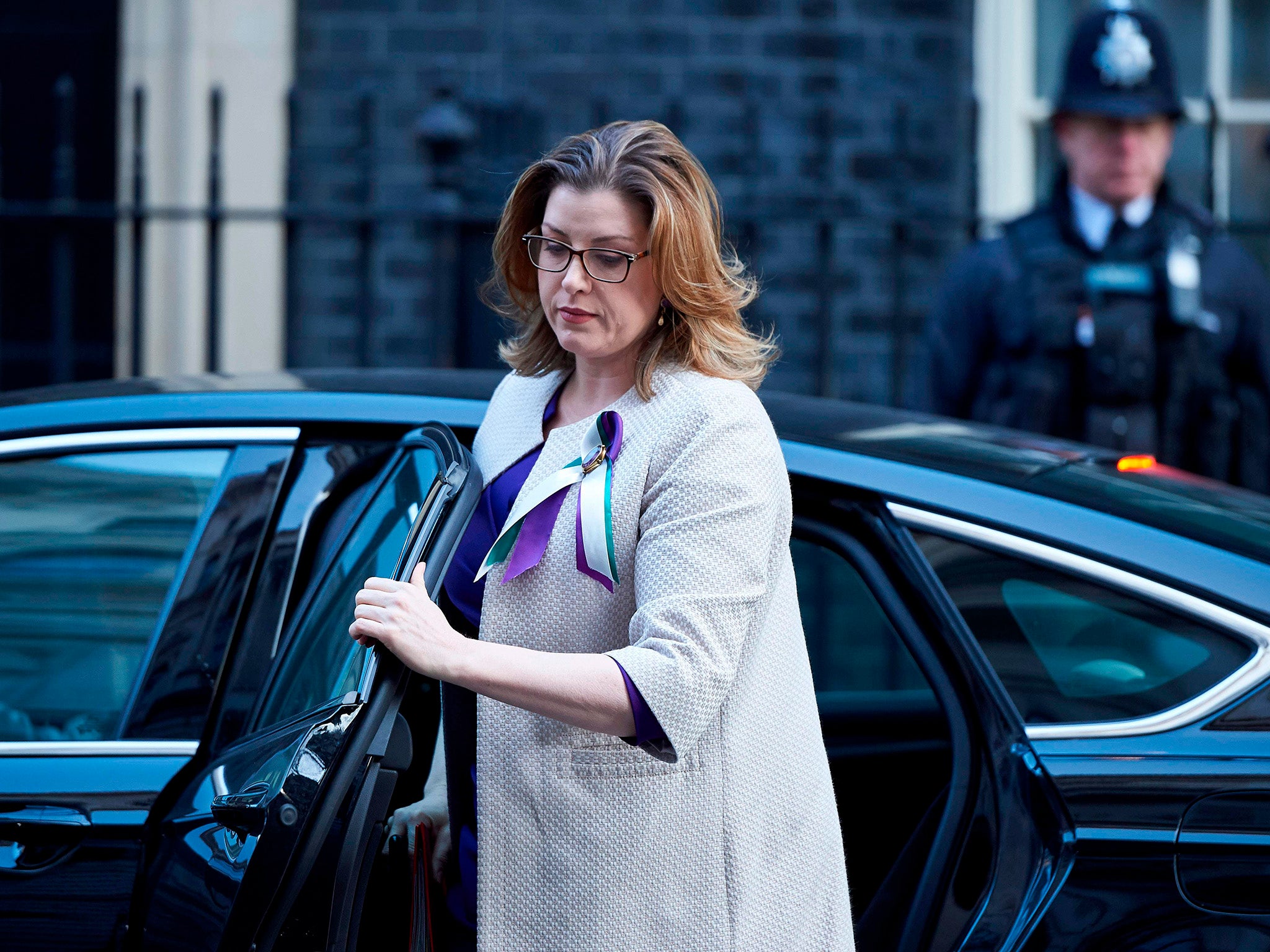Syria strikes latest updates: Penny Mordaunt opposes demands to give Parliament greater powers over military interventions
Remarks follow demands from Jeremy Corbyn to introduce a 'War Powers Act'

Penny Mordaunt, the international development secretary, has opposed demands to give Parliament greater powers over future military interventions.
The Cabinet minister’s remarks follow the joint British, French and US operation that saw more than a 100 missiles fired at the Syrian regime in the early hours of Saturday morning in response to a suspected chemical weapons attack.
In response to the attack - authorised by the Prime Minister on Friday - Jeremy Corbyn called for a “War Powers Act” that would enshrine into law a commitment for the executive to gain parliamentary approval prior to any military action and deploying British troops in conflict.
But speaking on the BBC’s Radio 4 Today programme, Ms Mordaunt warned against such a move, claiming that MPs would not have the required intelligence information.
She added it would be “crazy” to hand MPs intelligence such as missile targets ahead a vote on military action.
“To take a decision on whether something is legally justified, and wether what we are actually intending on doing in terms of targets is appropriate, you would need to know information that could not be shared with every MP,” she said.
“And so, outsourcing that decision to people who do not have the full picture is, I think, quite wrong. And, the convention that was established, I think is very wrong.
“I support governments being able to take those decisions, Parliament should hold government to account for that decision.”
When it was put to her that the former Conservative foreign secretary William Hague had backed giving MPs a vote on any military action, she replied: “I think that is wrong.”
Asked if then Prime Minister David Cameron was wrong to recall parliament to vote on proposed intervention in Syria in 2013, Ms Mordaunt said: “I would disagree with anyone that thinks we got 2013 right.”
“You cannot ask Parliament to make decisions without the information necessary to make those decisions.
She continued: “You can’t, for example, share targets with members of Parliament. It would be a crazy thing to do.”
Ms Mordaunt was also unable to confirm whether MPs would get a substantial vote for or against the latest military action in Syria but said the Prime Minister had applied for an emergency debate in the Commons later on Monday to debate the assault on Bashar al-Assad’s regime.
Ms May is expected to say: “We are confident in our own assessment that the Syrian regime was highly likely responsible for this attack and that its persistent pattern of behaviour meant that it was highly likely to continue using chemical weapons.”
Linking the attack to the UK’s broader stand-off with Russia over the Salisbury nerve agent poisoning, she will add: “It is in our national interest to prevent the further use of chemical weapons in Syria and to uphold and defend the global consensus that these weapons should not be used.
“For we cannot allow the use of chemical weapons to become normalised – either within Syria, on the streets of the UK or elsewhere.”
Join our commenting forum
Join thought-provoking conversations, follow other Independent readers and see their replies
Comments
Bookmark popover
Removed from bookmarks